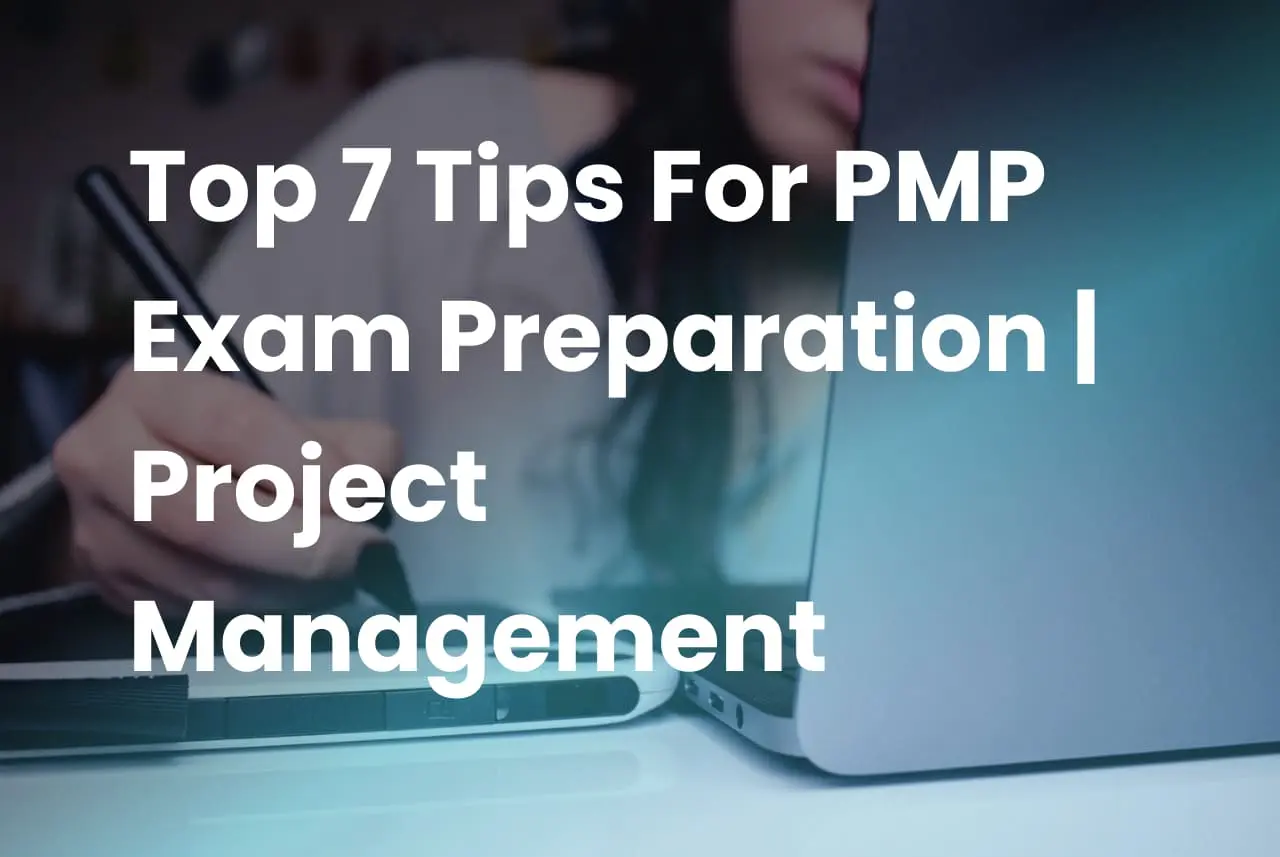Top 7 Tips For PMP Exam Preparation
The PMP (Project Management Professional) Certification by the Project Management Institute (PMI) has emerged as one of the leading certification courses for project managers across industries.
A global resource management report suggests that by 2030, there will be a need for 25 million new project professionals. This translates into an ever-increasing demand for skilled project managers. With that being said, earning the PMP Certification can help you establish yourself as a highly-skilled project manager with hands-on leadership expertise and experience.
The path to getting a PMP Certification can be a tedious one as it involves extensive preparation for months before you can take the actual exam. Below are our top 7 tips to enlighten your exam prep journey.
1. Leverage the PMBOK Guide
PMI offers PMP certification aspirants a guidebook to the Project Management Body of Knowledge or the PMBOK Guide. It contains all essential details regarding the exam, including:
- Its prerequisites
- Certification exam pattern
- Topics covered in the exam
- Types of questions you will face during the exam, and much more.
Therefore, referring the latest PMBOK Guide for preparation would definitely help you get in the right direction. The PMP exam is based on ECO (Exam Content Outline) hence constructing your preparation plan around it as the centerpiece is a smarter way to proceed.
2. Focus On Comprehension and Not on Memorization
The PMP certification examination is designed to assess your ability to apply project management principles and theories in real-world situations. However, most often than not, aspirants get caught up in trying to memorize the contents. This is typical because the exam material contains ample complex terminologies and theories related to the three PMP domains.
To make the most out of your time spent in exam prep, you must read to understand. Eventually, this will enable you to apply those concepts to real-life scenarios.
3. Leverage Free Exam-Prep Resources
When you visit the PMI website, you can find the following free-to-download resources for the certification exam aspirants:
- PMP Handbook
- PMP certification exam content outline
- PMP sample questions
You can leverage these resources as a reference point for gauging your awareness of the multiple PMP exam domains, which span a wide range of topics.
4. Become a Part of an Online Community
We advise all future PMP exam takers to join a PMP discussion group or study forum (such as PMI’s Certification Central) as part of their exam prep plan. You can:
- Post and get your queries and concerns answered
- Find out more about new exam resources
- Strengthen your understanding of the concepts while resolving queries of other participants
- Connect and network with both candidates and certified professionals
5. Online Exam Prep Courses at Your Rescue
Online discussion forums and study groups are vital in supplementing your exam preparation. However, you need a more solid primary approach to prepare for the PMP Certification exam. This is where online exam prep courses come into the picture.
Enrolling in a well-structured certification preparation course enables you to receive the guidance of experienced and knowledgeable instructors who have cleared the exam. You can take the help of the instructors to get your queries solved and benefit from their tried and tested preparation strategy and experience. In short, it will significantly boost your success rate.
Moreover, make sure to enroll with a Project Management Institute Authorized Training Partner (ATP) only.
6. Add the Online PMP Exam Simulators to Your Prep Strategy
Taking practice exams is an integral part of preparing for any exam and it is all the more crucial for the PMP Certification. It contains 200 multiple-choice questions that also include formula-based questions, inference-based questions, complex situational questions, and knowledge-based questions. So, using PMP simulators will enable you to assess your preparation level while also increasing your confidence and diligence to tackle exam pressure.
7. Design Your Own Study Plan
Based on your familiarity and level of understanding of the topics, you can devise a custom plan for daily and weekly learning milestones. You must ask yourself certain critical questions before finalizing your study plan, including:
- What is your familiarity level with the exam topics?
- What amount of time are you willing to devote to studying?
- When do you plan to take the examination?
- Which training technique is better for you: self-study or instructor-led?
Parting Thoughts
The PMP certification exam preparation is a highly individualistic journey that demands the devotion of time, energy, and sincere efforts from the candidate. The aforementioned points are the best tips tested over time for taking this exam and are sure to make a substantial difference in your test preparation drive. Place your focus on studying smarter while investing the right amount of effort to land you your dream job in Project Management!
